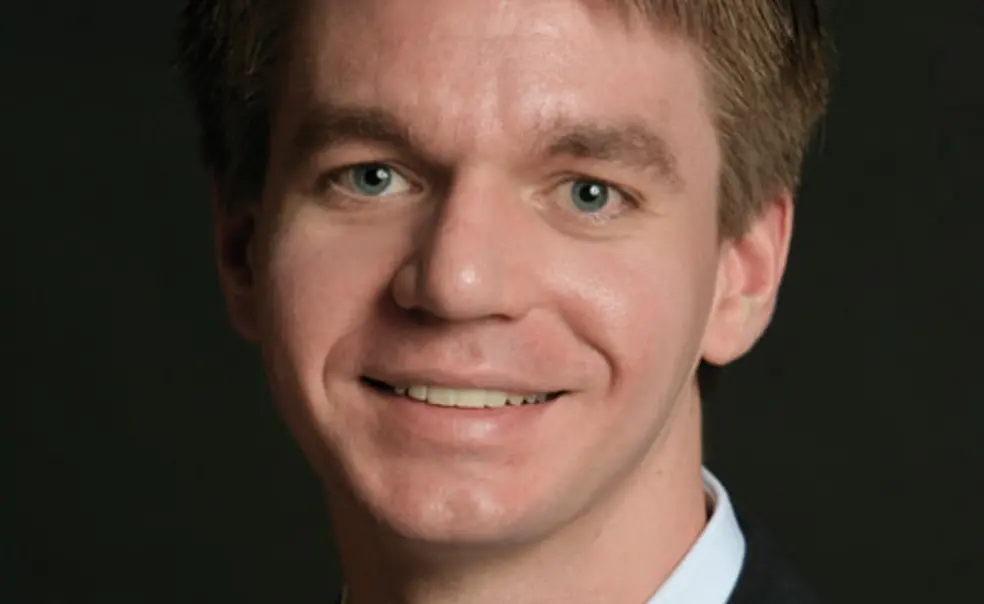Alumni Profile: Matt Ahart '99, keeping in touch with grandma
When Matt Ahart ’99 moved east for college it became harder to keep in touch with his grandmother. She couldn’t hear well on the phone, and her hands trembled so much that replying in writing to his letters became difficult. She didn’t use a computer. To help him communicate, his mother would print out his e-mails and show them to his grandmother.
That solution was a seed that some 10 years later led to the idea for a service he created to help people keep in touch with their older, offline relatives, who are often left out of the loop of family news and photographs. Ahart and high school friend Jim Whiting started Sunnygram, a company that converts e-mails and digital photographs sent by family members into a weekly newsletter mailed to their relatives. Grandma and grandpa can respond by calling a toll-free number and leaving a message that Sunnygram e-mails as a sound file to the right person, or by writing notes back on Sunnygram-provided stationery that they send to the company, which scans and forwards them as e-mails to their relatives.
Since its launch last spring, Sunnygram has attracted more than 5,000 subscribers who pay a $9.95 monthly fee, says Ahart. A few of the subscribers are military personnel or prisoners, who don’t have access to e-mail.
It’s rewarding, says Ahart, to hear from subscribers after they get their first response from a senior relative. “People have said, ‘I cried because I hadn’t heard from her in such a long time,’” he says.
Ahart, who has worked in financial services, practiced law, and with his sister started a bankruptcy-education company, is expanding the service by creating a Facebook application so people can send their news and photos from that site.
He isn’t concerned that eventually everyone will be online and his business no longer necessary. With some 15 million Americans over the age of 72 not online, based on a Pew Research Center study and Census Bureau data, “we have a ways to go before adequately serving that demographic,” he says.












No responses yet